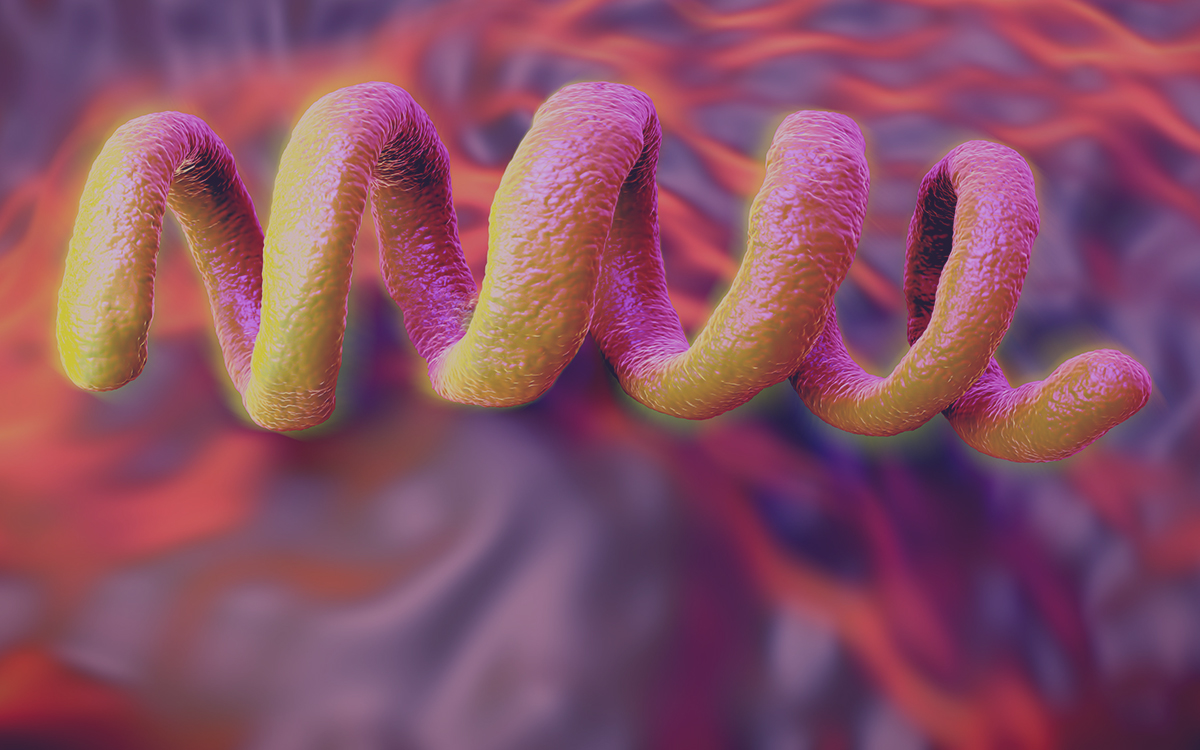Infections - Prevention, Diagnosis & Treatment
SYPHILIS
By A.A. (staff writer) , published on October 30, 2020

Medicine Telehealth Health syphilis prevention of syphilis
Syphilis is a serious infection caused by bacteria. It is mostly spread by sexual contact. It begins with painless sores on your genitals, mouth, and rectum. Syphilis spread from person to person through mucous membrane or skin contact with syphilis sores.
The syphilis bacteria remain dormant or inactive for years in your body after the initial infection. The bacteria may become active again and cause infection. It is easy to treat the initial infection with a single shot of penicillin. Untreated syphilis can severely damage your organs including the heart and brain. It also passes from mother to fetus1.
The sores of syphilis can also cause HIV during sex. Syphilis can also cause complications in pregnant women and abnormalities in the fetus or you may lose your baby. Syphilis can also cause serious health issues and even death. The spread of syphilis can be controlled by using latex condoms. You must avoid oral, anal, and vaginal sex to stop the spread of syphilis2.
Risk factors of syphilis
The following are the risk factors that increase the chances of syphilis.
- Unprotected sex
- Multiple sex partners
- HIV patient
- A man who has sex with men3
Spread of syphilis
The chances of the spread of syphilis are higher by direct contact with sore of syphilis during oral, anal, and vaginal sex. The sores of syphilis are present on the vagina, penis, anus, rectum, mouth, and lips.
Symptoms of syphilis
The symptoms of syphilis depend on the stages of syphilis.
Symptoms of primary syphilis (stage#1)
Sores at the site of infection will appear one to ten weeks after infection
These sores can be painless, firm, and round
Symptoms of secondary syphilis (Stage#2)
- After six months you may experience
- Fever
- Flu
- Skin rash
- Swollen lymph nodes
- Sore throat
- Primary and secondary syphilis have mild symptoms that might not be noticed4.
Symptoms of the latent stage (Stage#3)
No signs and symptoms during this phase, but the infection is established and can pass from one person to another.
Symptoms of Tertiary syphilis (Stage#4)
Tertiary syphilis develops after a few years. It is linked with severe medical issues. Multiples tests are performed for the diagnosis of tertiary syphilis. It can affect various body organs including the heart, and brain. It may also cause strokes, deafness, blindness, paralysis, and lung problem5.
Prevention of syphilis
Using condoms will prevent many cases of syphilis. If you wanted to reduce the risks further, you would have to use condoms for oral sex. Sucking cock carries a risk even if he doesn't cum in your mouth.
Diagnosis of Syphilis
Physical examination and history
Doctors usually diagnose syphilis by taking your history of sexual activities and asking about your partner. Doctors can also conduct a physical examination. Your doctor may also take a sample from sore during primary and secondary syphilis to determine the syphilis bacteria.
Cerebrospinal fluid
If your doctor found that you are having nervous system problems due to tertiary syphilis, you may need a spinal tap or a lumbar puncture. Spinal fluid is collected during this procedure and check for syphilis bacteria.
Blood tests
Blood tests are used to detect past or current infection. Antibodies against the syphilis bacteria may be present from many years in the body.
Pregnant women are also tested for syphilis because syphilis bacteria can be present in the body without showing any signs and symptoms. These measures are taken to prevent the fetus from congenital syphilis. Congenital syphilis can be harmful to the fetus and may lead to severe damage6.
You must tell your partner if you are undergoing diagnosis and treatment for syphilis. Your partner must also undergo testing. It is also recommended by healthcare professionals to test for HIV7.
Treatment of Syphilis
Penicillin injection is a useful treatment for primary and secondary syphilis. Penicillin is an effective and widely used antibiotic for treating syphilis. Different antibiotics can also be used in people who are allergic to penicillin, including
Ceftriaxone
Azithromycin
Doxycycline
A daily intravenous dose of penicillin is recommended if you have neurosyphilis, that need a brief hospital stay. The damage done by tertiary syphilis cannot be reversed. The treatment aims to kill bacteria and to relieve the discomfort and pain associated with infection.
The treatment of your partner is also essential if you are sexually active. Talk to your doctor before resuming sexual activities. It is advised to avoid sexual contact until all the sores of syphilis are healed. After the completion of treatment, you can resume sexual activities8.
The shots of penicillin are given in syphilis treatments. 1 shot of penicillin is enough if you had syphilis for 1 year or less. If you have syphilis for more than 1 year then you need stronger treatment like 2 or more shots.
Moreover, advanced cases, of syphilis also require stronger treatment. In such cases, penicillin shots are given every day for 10 days9.
References
- Syphilis. [internet]. [cited 2020 September 14]; Available from https://www.mayoclinic.org/diseases-conditions/syphilis/symptoms-causes/syc-20351756#:~:text=Syphilis%20is%20a%20bacterial%20infection,membrane%20contact%20with%20these%20sores.
- Syphilis. [internet]. [cited 2020 September 14]; Available from https://medlineplus.gov/syphilis.html
- Syphilis. [internet]. [cited 2020 September 14]; Available from https://www.mayoclinic.org/diseases-conditions/syphilis/symptoms-causes/syc-20351756#:~:text=Syphilis%20is%20a%20bacterial%20infection,membrane%20contact%20with%20these%20sores.
- Syphilis. [internet]. [cited 2020 September 14]; Available from https://www.cdc.gov/std/syphilis/stdfact-syphilis.htm
- Syphilis. [internet]. [cited 2020 September 14]; Available from https://www.gmfa.org.uk/syphilis
- Syphilis. [internet]. [cited 2020 September 14]; Available from https://www.healthline.com/health/std/syphilis#diagnosis
- What to know about syphilis? [internet]. [cited 2020 September 14]; Available from https://www.medicalnewstoday.com/articles/186656
- Syphilis. [internet]. [cited 2020 September 14]; Available from https://www.healthline.com/health/std/syphilis#diagnosis
- Syphilis. [internet]. [cited 2020 September 14]; Available from https://familydoctor.org/condition/syphilis/
Find articles related to: Medicine Telehealth Health syphilis prevention of syphilis
More articles about Infections - Prevention, Diagnosis & Treatment
Back to the Health Tips Index




